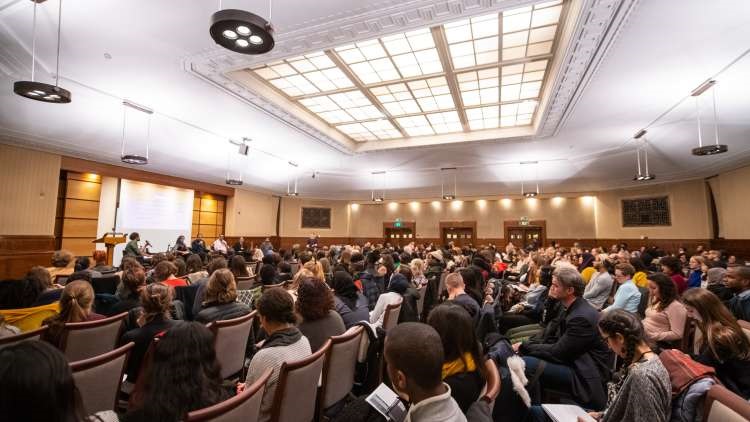IHR Director, Claire Langhamer, reflects on some recent IHR event and seminar highlights.
Since January we have been involved in, and hosted, very many events, many of which are collaborative in nature. Here I want to pull out some particular highlights, from the last five months.
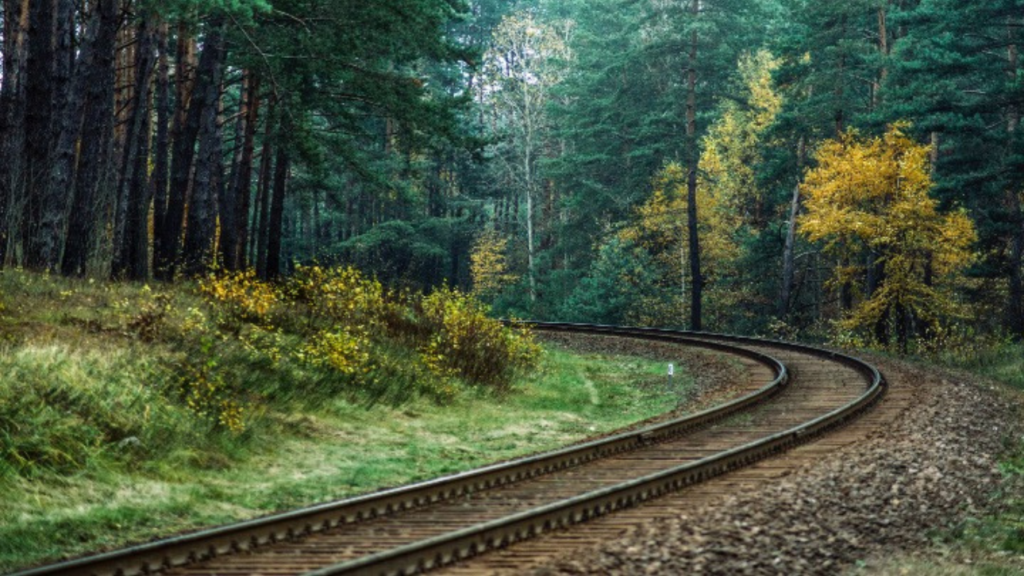
This year’s Holocaust Memorial Lecture—in collaboration with the Birkbeck Institute for the Study of Antisemitism—was delivered by Jelena Subotic. Entitled ‘Holocaust Memory in Eastern Europe’ the lecture explored the ways in which the memory of the Holocaust in post-communist Eastern Europe has been used to represent other types of historical crimes. Specifically, she examined the extent to which this instrumentalization of Holocaust memory has fed the rise of nationalized, particularized, and populist remembrance practices, and has helped produce a crisis in Holocaust memory globally.
History and Archives in Practice is a collaboration between the IHR, the Royal Historical Society and The National Archives. In March we hosted a one-day workshop on ‘Collecting Communities: Working Together and with Collections’. Speakers represented a broad range of universities and archives, large and small, from across the UK. Panels considered the rediscovery, digitising, and creating of collections; the locating of collections in places and communities; and collaborative working between historians, archivists, and the public. There was a particular focus on practice—how historians, archivists, and their communities work best together—to provide insights and experiences for attendees to carry into their own work. The event was recorded and is available here.
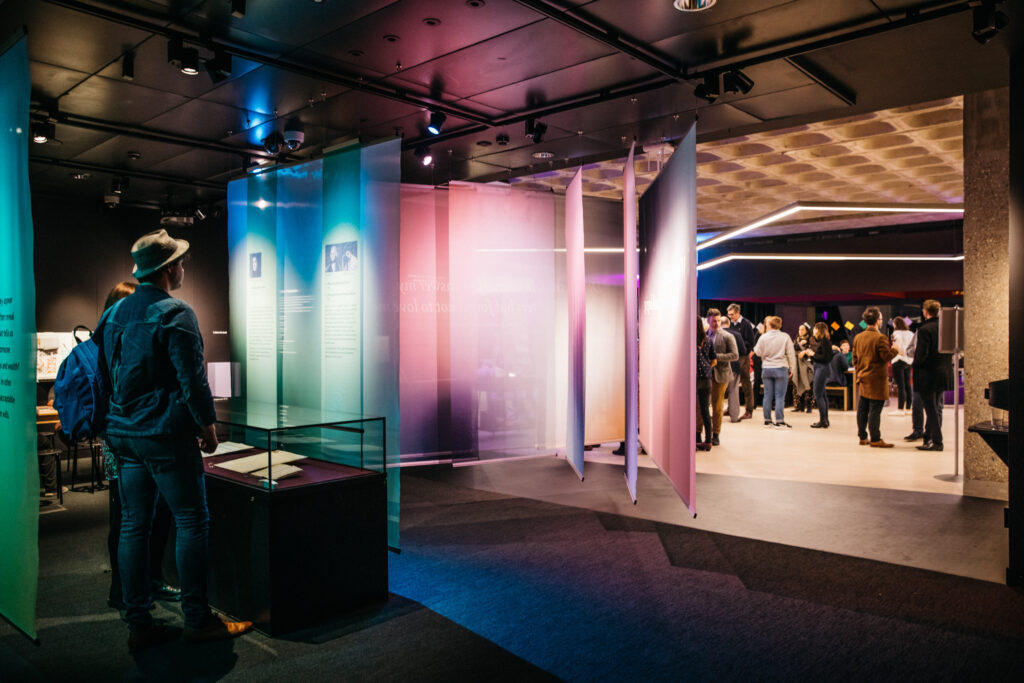
The in-person event was followed by an online panel event to discuss some of the projects that we were not able to accommodate on the day itself and this can be accessed here.
Following HAP23 we are looking to take HAP across the country and partner with UK archive centres, large and small, to learn more about collections and good practice. The three existing partners have recently launched a call inviting organisations and institutions to submit their interest in becoming a partner for the HAP24 event.
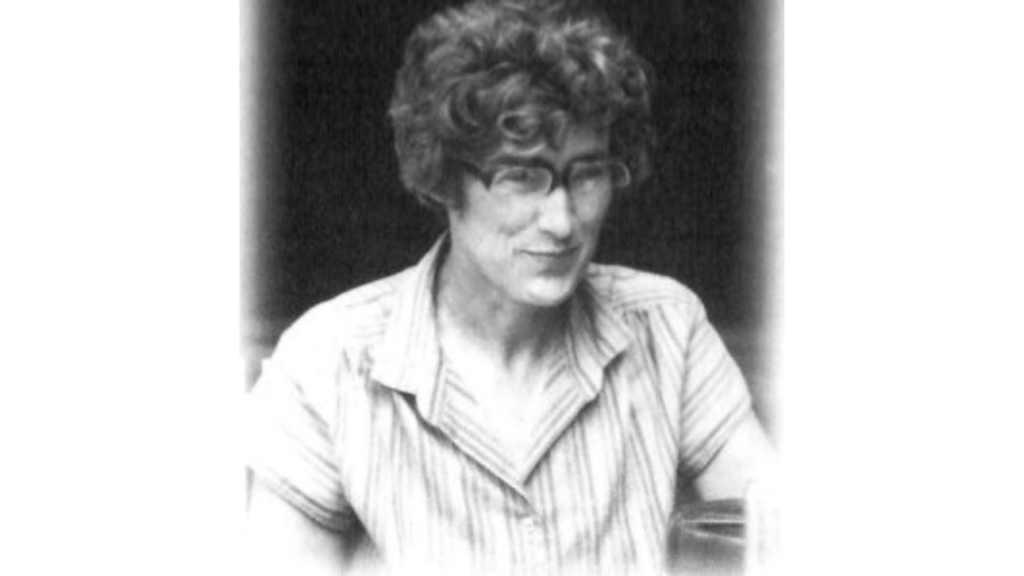
A symposium event in April brought together a diverse range of scholars to reflect upon the career of IHR benefactor and friend—Susan Reynolds—and her impact upon medieval history. Speakers at the event reflected on her life as teacher, colleague, and friend; the role of London in her work, and her legacy. There was also a display of artefacts relating to her work and to her connection to the IHR. The three sessions are available to watch:
In April we also hosted a Commemoration of Glen Jacques, who worked at IHR reception from 2005 until 2021. Glen was a keen and talented model-maker and in 2020 he made a scale model of the IHR’s original building, a large timber-framed ‘hut’ standing in Malet Street. The model, which has been donated to the IHR, was shown for the first time at the event and now sits in the Common Room. We also unveiled a portrait of Glen which is now part of the IHR portrait gallery. The event recording is here. More information about the model is here and there is a video of Glen talking about the model here.
In May Andrew Rumsey, Bishop of Ramsbury, provided a fitting end to ‘Victoria County History Day’—a training day for community historians—with a public lecture on Another Country: How the English Parish Shaped a Nation. The lecture explored how the idea of ‘parish’ has contributed to our shared sense of identity and belonging. In a time when environmentalists and politicians alike are looking for sustainable models of community, he suggested that this ancient inheritance might point us to common ground. You can watch a recording of the lecture here.
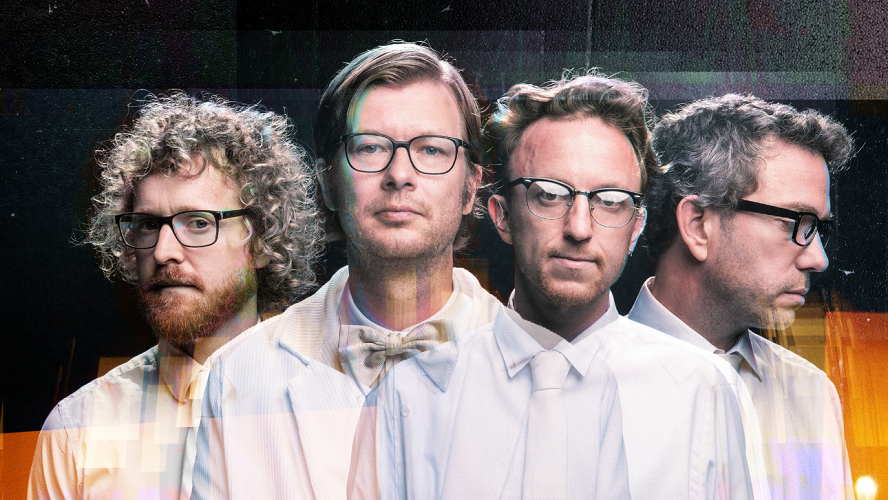
Also in May, and this year funded by the Creighton Fund, we launched a new series—Conversations on History—in which we ask a public figure to tell us how the past has informed their working life or creative practice. Our opening conversation was entitled ‘The Power of Archives’ and featured J. Willgoose Esq., a founder member of the electronic/rock guitar band Public Service Broadcasting. PSB specialise in concept albums that represent and play with the past, whilst maintaining a strong connection to place and community. In this Conversation J. talked about how he has used archive material and why; how his practice has evolved as the band has grown; and specifically how the band weaves narratives through their albums with the use of samples culled from various historical sources.
On 19th June our AHRC-funded Windrush Project ran a conference on The Windrush Scandal in a Transnational and Commonwealth Context to explore the Windrush Scandal, which saw members of the Windrush community arrested, detained, and in some cases deported, despite having every right to remain in the UK. The conference examined how the scandal was possible and what its impact is likely to be. It was followed by an evening event in which we celebrated the contribution of the Windrush Generation: Remembering the Ship in Citizenship: an evening with John Agard. You can read more about the day later in the bulletin.
Events led by postgraduate students or early career researchers include: Waseem Ahmed’s postgraduate-led conference on ‘Christopher Hill and the English Revolution: 50 Years after The World Turned Upside Down’ (February) and Juanita Cox’s collaboration with the Oral History Society on the series ‘In Dialogue at the IHR: The Oral History Society@50’, which included an in-conversation with the Young Historians Project. In June, we collaborated with the Parkes Institute, University of Southampton, on an International Graduate Conference. The two-day conference, entitled ‘Experiencing and Imagining Jewish/non-Jewish Relations’, provided the opportunity for postgraduate students and early career researchers from around the world to network and present their research among fellow academics.
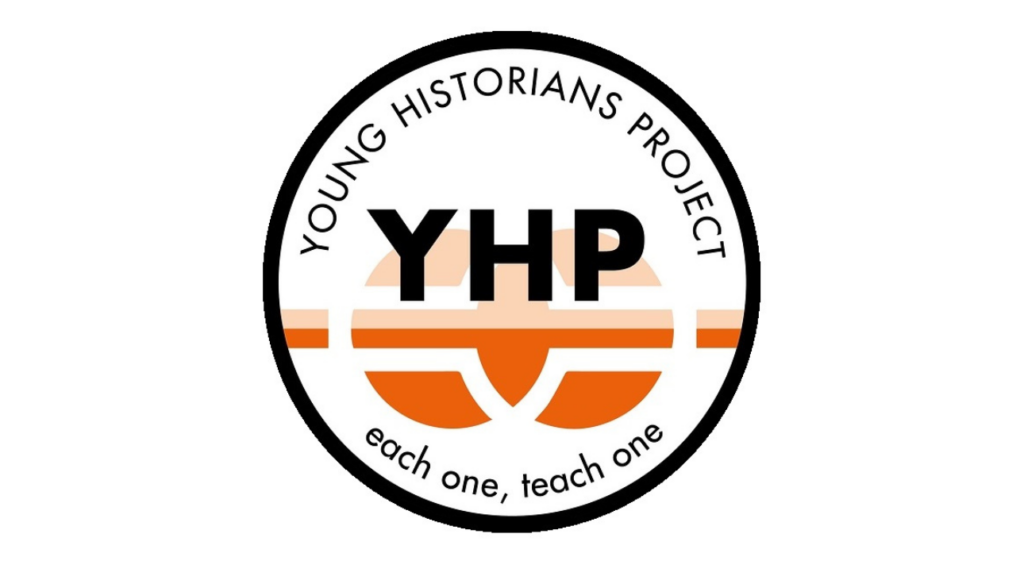
We continue to support the activities of History Lab and the newly re-energised History Lab Plus, which held an in-person event at the IHR on ‘Community and Collaboration’ in January and an online event on ‘Life After the PhD’ in March. Another event in Manchester Central Library on ‘Historians/Audience/Communities’ took place in June, and they will host a two-day conference on ‘Making History’ in Senate House in July. History Lab Plus is very busy mobilising Regional Hubs and events too. We have also been working with Olivia Wyatt and Deanna Lyncook from QMUL on a two day PGR-run conference on ‘The Issue of Truth: representing Black British History’ which will take place in the IHR 21st-22nd September 2023.

